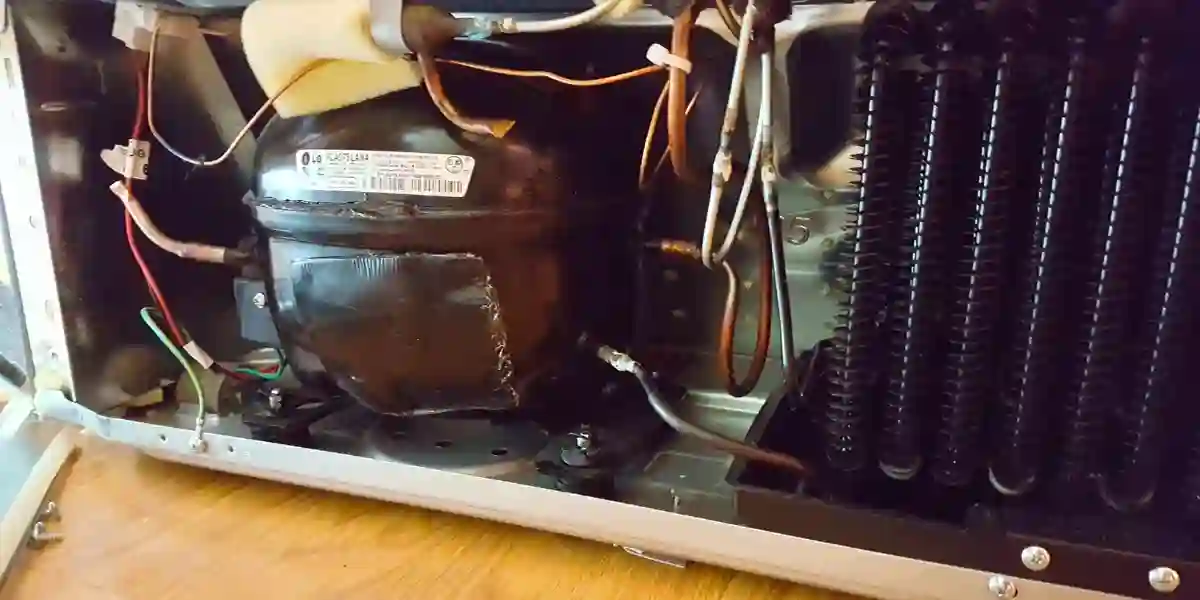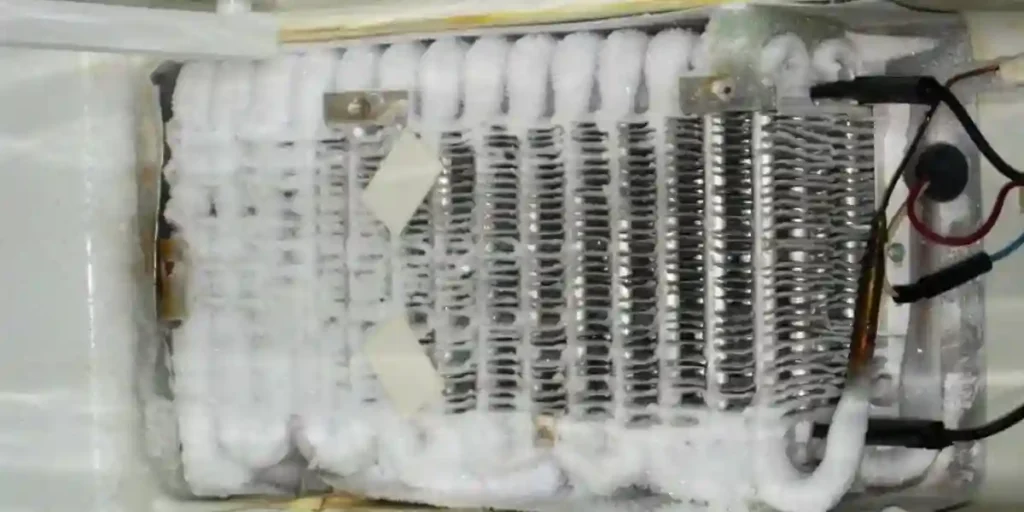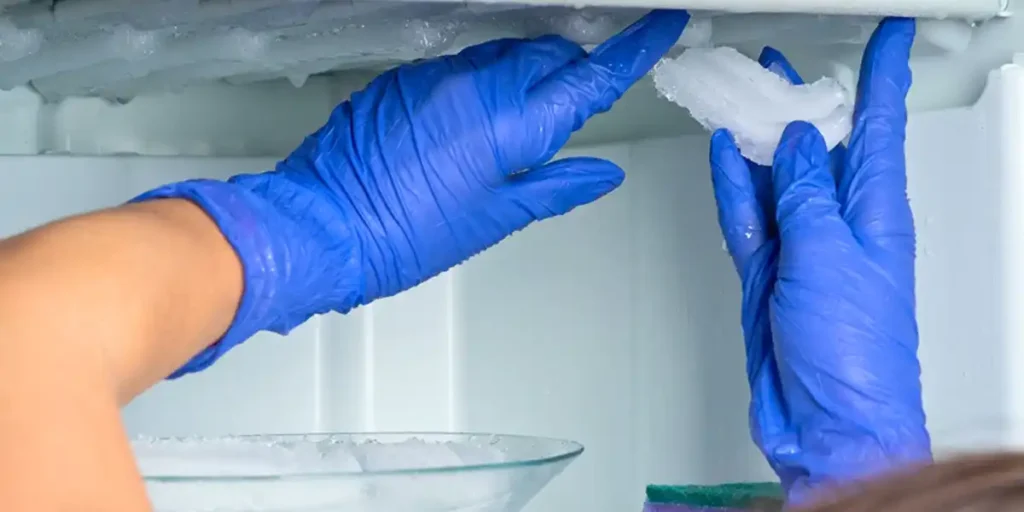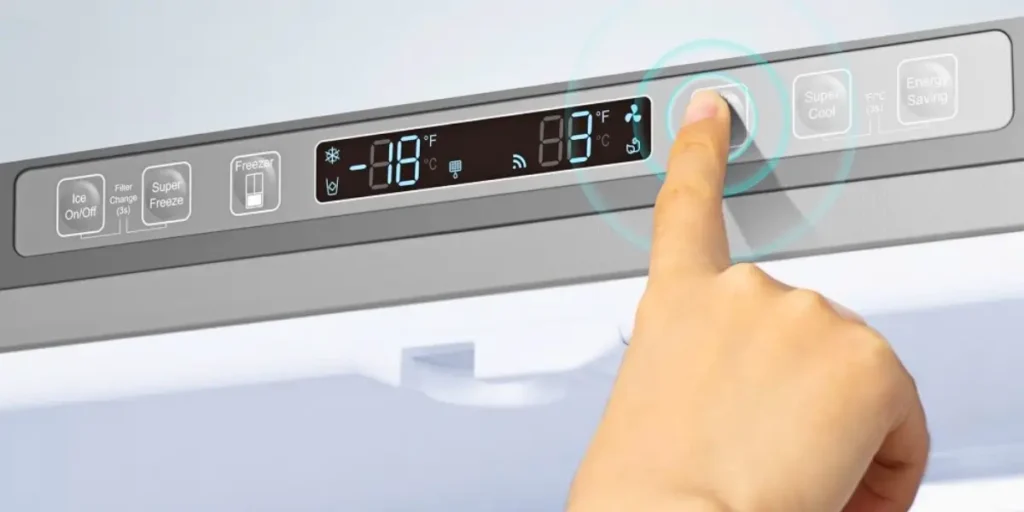Refrigerator Makes Popping Noise When Compressor Shuts Off
We may earn affiliate fees for purchases using our links (at no additional cost to you).
Do you notice refrigerator makes popping noise when compressor shuts off? This can be a concerning issue for many homeowners.
But don’t worry, I’m here to help. In this article, I’ll explore the possible causes of this noise. Also, provide you with practical solutions to address the problem.
By understanding the underlying reasons behind the popping noise you can ensure the smooth operation Let’s dive in and find out more!

Why Does Your Refrigerator Makes Popping Noise When Compressor Shuts Off?
When your refrigerator’s compressor shuts off, it’s natural to hear some sounds. It happened due to the refrigerant and components adjustments.
However, if you’re hearing a distinct popping noise, it indicates an issue. So that requires attention. Let’s explore a few possible causes for this noise.
Expansion and Contraction of Refrigerant Lines
Refrigerant lines undergo temperature changes as the compressor cycles on and off. This temperature fluctuation can cause the lines to expand and contract. As a result, a popping noise arises.
This noise is generally harmless. It can be more noticeable if the refrigerant lines are close to other parts of the refrigerator.
Defrost Cycle Activation
Modern refrigerators often have an automatic defrost cycle. It prevents frost buildup on the evaporator coils. When the defrost cycle is activated, the refrigerator temporarily stops cooling.
It initiates a heating element to melt the accumulated frost. During this process, you may hear a popping noise. Because the defrost heater turns on or off.
Ice Buildup

If your refrigerator has an ice buildup in the evaporator or freezes, it can cause a popping noise during shuts off. This noise occurs as the ice contracts or cracks due to the temperature change.
Regular maintenance, such as defrosting and cleaning the freezer compartment, can help. It prevents excessive ice buildup and minimizes this noise.
Faulty Components
Sometimes a popping noise may indicate a problem with a specific component in the refrigerator. For example, a defective compressor motor, or faulty condenser fan, may cause unusual noises.
If you suspect a faulty component, it’s advisable to consult a technician. They can diagnose and repairs correctly.
How to Address the Popping Noise in Your Refrigerator
Now you know the potential causes of the popping noise. Let’s discuss some practical steps you can take to address this issue.
Check for Loose or Vibrating Components
Inspecting your refrigerator for any loose or vibrating components. That may contribute to the popping noise. Ensure that all screws, bolts, and panels are securely fastened.
Pay particular attention to the compressor, condenser fan, and evaporator fan. If you identify any loose components, tighten them gently. Use the appropriate tools to fix the components correctly.
Clean the Freezer

Excessive ice buildup in the freezer can lead to popping noises. To prevent this, periodically defrost your refrigerator. Clean the freezer compartment crucially.
Remove any ice or frost using a plastic scraper or spatula. Once the ice has melted, wipe the interior surfaces. Use mild detergent solution and rinse thoroughly. Regular cleaning will help to maintain proper airflow. It reduces the popping noise.
Maintain Proper Clearance
Ensure that your refrigerator has sufficient space around it. Surrounding space is essential for proper ventilation. Check the manufacturer’s guidelines for the recommended clearance.
Inadequate airflow can cause the compressor to work harder. That generates more noise. By maintaining adequate clearance, you can optimize the refrigerator’s performance. That also reduces unnecessary sounds.
Schedule Professional Maintenance
If the popping noise persists despite your efforts, schedule a professional maintenance service. An expert technician can thoroughly inspect the appliance. He can diagnose the root cause of the noise. Then perform any necessary repairs.
Regular maintenance can extend the lifespan of your refrigerator. Also, it ensures the smooth functionality of your fridge.
Tips to Minimize Refrigerator Noise
Keep the Refrigerator Level and Stable Check and adjust the leveling legs of the refrigerator. Ensure that it is sitting evenly on the floor.
Place the refrigerator on a stable surface. It minimizes vibrations. That can contribute to noise.
Clean the Condenser Coils
First, locate the condenser coils in your refrigerator. Usually, it is located at the back or beneath the refrigerator.
Use a vacuum cleaner or a soft brush to remove dust and debris from the coils. Regular coils cleaning improve cooling efficiency. It also reduces strain on the compressor. As a result, you will get quieter operation.
Ensure Proper Air Circulation
You should keep some space between the refrigerator and the surrounding walls. Space ensures proper airflow in your room.
Avoid overcrowding the refrigerator with food items. You need to maintain proper air circulation inside. That reduces sound.
Check the Door Seal
Don’t forget to inspect the door seal or gasket. Look for any signs of wear or damage.
Replace a faulty seal to prevent cool air leakage. This can cause the refrigerator to generate more noise.
Avoid Overfilling the Refrigerator
Do not overload the refrigerator with too many items. Especially on the shelves.
Overfilling can disrupt the airflow. That makes the refrigerator work harder and creates additional noise.
Ensure Proper Temperature Settings

Set the refrigerator temperature to the standard level. Adjusting the temperature excessively coldly can generate more noise.
Check for Loose or Vibrating Parts
Regularly inspect the refrigerator for loose or vibrating parts. Such as shelves, drawers, or door bins.
Tighten or adjust any loose components to minimize rattling noises. Regular inspection is the key to avoiding popping sounds.
Insulate Against External Noise
If the refrigerator is located in a noisy area, use soundproofing materials. Or placing a rubber mat underneath to absorb vibrations.
Avoid Placing Items on the Top
Do not use the top of the refrigerator as a storage space. Especially don’t keep any heavy or bulky items on top.
Placing items on top can cause additional vibrations. That contributes to the noise.
Regular Maintenance
Follow the manufacturer’s guidelines for regular maintenance. Such as cleaning the interior, replacing filters, or defrosting if necessary.
By implementing these tips, you can significantly reduce refrigerator noise. So follow my tips to enjoy a quieter environment in the kitchen.
FAQs
Can the popping noise in my refrigerator indicate a serious problem?
Will the popping noise damage my refrigerator?
Can I fix the popping noise in my refrigerator myself?
Tightening loose screws or cleaning the freezer compartment can help. But it is better to take professional help for a major issue.
Should I be concerned if the popping noise occurs during the defrost cycle?
Can the popping noise be prevented entirely?
Conclusion
If you notice refrigerator makes popping noise when compressor shuts off, don’t get panic. Taking appropriate actions can resolve the issue.
Follow my tips to get minimize annoying popping noise. Regular maintenance is the key to avoiding unnecessary noise. If the problem persists after all the effort call a professional technician.
They can ensure the smooth operation of your refrigerator. Enjoy the quiet and efficient operation of your refrigerator!